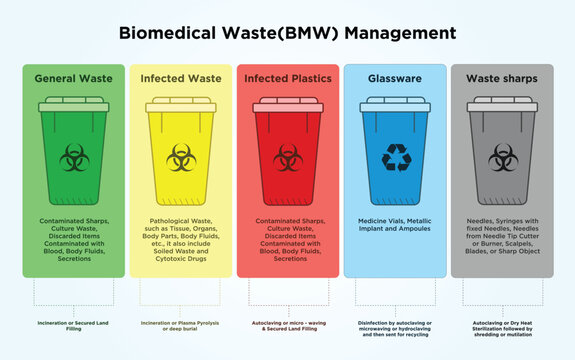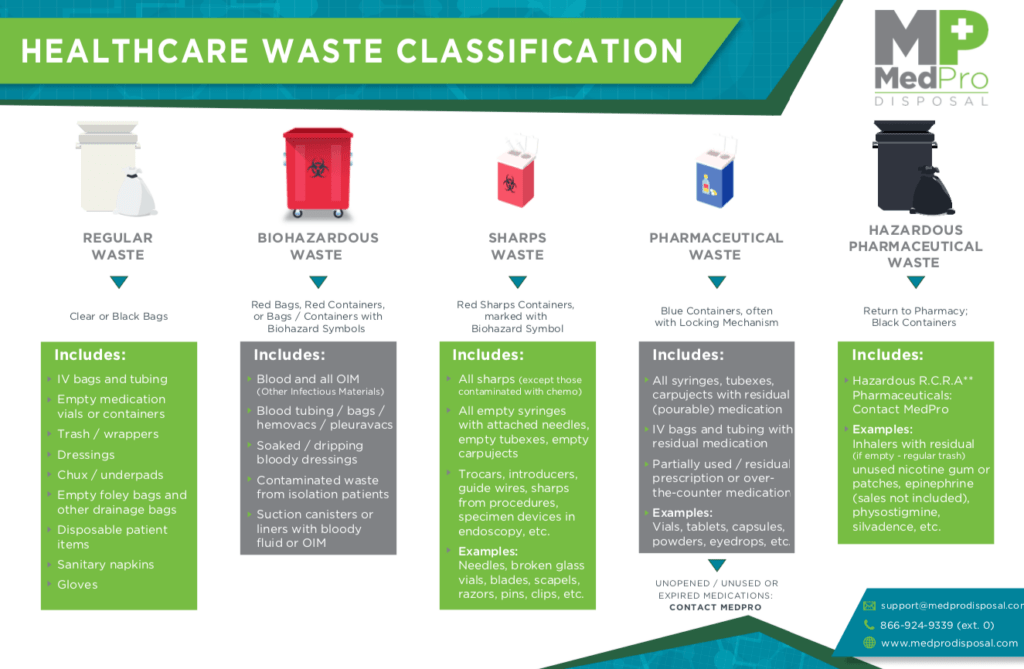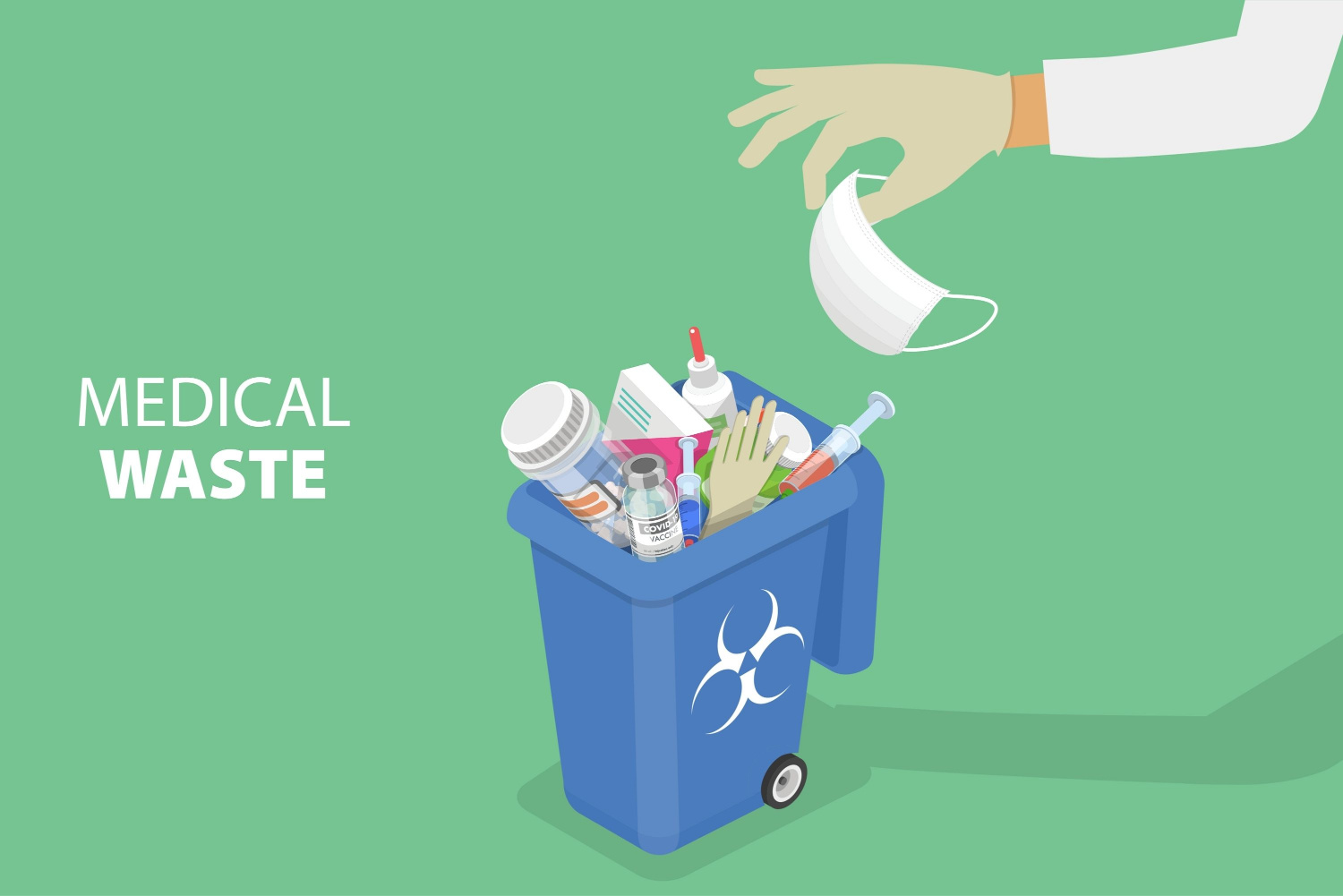Tailored Medical Waste Disposal Service: Fulfilling Medical Care Conformity Requirements
Wiki Article
Making Certain Safe Handling and Disposal of Medical Waste
Guaranteeing safe handling and disposal of medical waste is of critical significance in healthcare setups. Inappropriate monitoring of clinical waste can position significant threats to the atmosphere, public health, and healthcare workers. In this introduction, we will certainly discover the value of correct clinical waste management, the risks linked with improper handling and disposal, as well as the standards and approaches that can be implemented to guarantee its safe disposal.Importance of Proper Clinical Waste Administration
Proper medical waste management is of utmost value in making certain the safety and health of health care specialists, clients, and the basic public. Clinical waste describes any waste produced by medical care facilities during the medical diagnosis, treatment, or immunization of humans or pets. This waste can posture serious health and wellness risks if not taken care of and gotten rid of correctly.
Among the primary factors why appropriate medical waste management is essential is to stop the spread of transmittable conditions. Medical waste, such as used needles, contaminated dressings, and biological materials, can bring harmful microorganisms. Otherwise handled and taken care of appropriately, these pathogens can be transferred to healthcare employees, patients, waste trainers, and even the public, causing the prospective episode of illness.
Additionally, appropriate medical waste management helps shield the atmosphere - medical waste disposal service. Medical waste contains unsafe materials, including chemicals, pharmaceuticals, and radioactive substances. When not handled appropriately, these compounds can pollute dirt, water bodies, and the air, posing a significant risk to communities and public health
Additionally, efficient medical waste administration makes sure conformity with worldwide requirements and regional guidelines. Governments and regulatory bodies have developed protocols and standards to make certain the safe handling, storage space, transport, and disposal of clinical waste. Following these guidelines is vital to avoid legal repercussions and maintain the credibility and trustworthiness of medical care facilities.
Dangers of Improper Handling and Disposal

Clients can also be exposed to these contagious diseases if clinical waste is not properly disposed of. For circumstances, if infected needles or various other sharps are not dealt with in assigned puncture-proof containers, they may mistakenly prick people, resulting in prospective infections. If clinical waste is not segregated properly, there is a risk of cross-contamination in between various kinds of waste, further increasing the possibilities of disease transmission.
Incorrect disposal of clinical waste can also have detrimental results on the setting and the general public. If medical waste is not treated and taken care of correctly, it can pollute water sources, dirt, and air, bring about the spread of illness and pollutants. This can have long-term repercussions on ecological communities and public health.
Standards for Safe Handling of Medical Waste
Carrying out effective procedures for the risk-free handling of medical waste is necessary in ensuring the protection of medical care professionals, patients, and the public. These standards are vital in lessening the dangers linked with the handling and disposal of medical waste, such as infections, injuries, and environmental air pollution.Firstly, medical care facilities have to establish a detailed waste administration plan that abides by regional, national, and worldwide regulations. This plan should include clear instructions on waste segregation, product packaging, labeling, transport, and storage space. It is important to separate various kinds of waste, such as sharps, transmittable materials, pharmaceuticals, and non-hazardous waste, to avoid cross-contamination and advertise safe disposal.
Additionally, health care employees need to obtain comprehensive training on proper waste handling strategies. They ought to be informed on the possible threats of clinical waste, the proper usage of personal protective tools (PPE), and the correct procedures for managing, carrying, and dealing with different kinds of waste.
Additionally, medical care centers ought to frequently keep go to my site an eye on and audit their waste administration methods to guarantee compliance with standards. This includes conducting normal assessments, assessing waste handling treatments, and giving responses and training to team member.
Effective Methods for Waste Disposal
To make sure the safe handling and disposal of medical waste, it is vital to use efficient approaches for garbage disposal. Medical waste can position considerable risks to public wellness and the atmosphere otherwise handled and thrown away properly. For that reason, medical care centers and waste management companies must execute ideal methods to minimize these dangers.One reliable strategy for garbage disposal is segregation. It involves separating different types of clinical waste based on their attributes. Partition permits the correct treatment and disposal of each waste category, minimizing the capacity for contamination or harm. Health care facilities need to provide clear standards and training to team members on just how to set apart waste appropriately.

Additionally, health care centers should team up with accredited waste management business to ensure proper disposal of medical waste. These firms have the expertise and tools required to safely get rid of and take care of of medical waste in conformity with policies and finest techniques.
Training and Education for Healthcare Professionals
Medical care specialists play an important role in making sure the secure handling and disposal of clinical waste with comprehensive training and education and learning. It is important for doctor to have a deep understanding of the prospective risks connected with medical waste and the proper protocols for its monitoring. By obtaining appropriate training, healthcare specialists can lessen the prospective transmission of transmittable illness, stop ecological contamination, and protect both themselves and the public.
Moreover, training programs need to highlight making use of individual safety equipment (PPE) and correct hand hygiene techniques when dealing with medical waste. medical waste disposal service. Medical care experts ought to know exactly how to appropriately use and get rid of of PPE to shield themselves from potential exposure to harmful materials. They need to also be educated on the significance of routine handwashing and the appropriate usage of hand sanitizers to lessen the spread of infectious conditions
Proceeding education and normal updates on clinical waste management techniques are critical for medical care specialists. As regulations and guidelines progress, it is vital to keep healthcare providers informed concerning any type of adjustments in methods and ideal techniques. This will certainly guarantee that they remain updated and maintain a high standard of safety and security in managing and getting rid of of clinical waste.
Final Thought
In verdict, appropriate handling and disposal of medical waste is vital to make sure the safety and security of healthcare specialists, people, and the atmosphere. By sticking to these techniques, we can mitigate the prospective threats connected with clinical waste.Medical waste refers to any kind of waste created by healthcare facilities throughout the diagnosis, therapy, or immunization of pets or people. If medical waste is not set apart correctly, there is a risk of cross-contamination in between various types of waste, more enhancing the chances of disease transmission.
It is essential to divide different kinds of waste, such as sharps, transmittable materials, pharmaceuticals, and non-hazardous waste, to stop cross-contamination and promote secure disposal. WasteX Medical Waste Disposal.
To ensure the safe handling and disposal of medical waste, it is vital to employ reliable approaches for waste disposal. In addition, medical care centers need to develop a normal waste collection and transportation routine to protect against waste accumulation and lessen the risk of accidents or contamination.
Report this wiki page